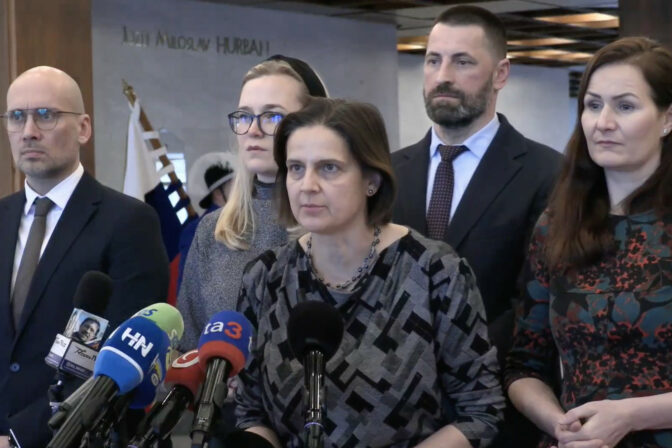BRATISLAVA, September 23, (WEBNOVINY) — Minister of Labor and Social Affairs Jozef Mihal has confirmed that the Cabinet is prepared to make certain concessions in the setting of flat-rate deductible expenditures for the self-employed. Based on the Cabinet’s draft tax and levy reform, a cap of EUR 200 a month should replace the current flat-rate expenditures of 40 percent of gross income that the self-employed can deduct from their tax base. “We can discuss a change in the percentage of flat-rate expenditures or the volume of the cap on these expenditures,” said Mihal adding that a change to the suggested 13-percent rate for paying social security contributions for the self-employed may also be discussed. “We certainly cannot discuss everything at once,” claims Mihal.
Mihal said that the debate can also result in modification of the cap on the flat-rate expenditures from proposed EUR 2,400 annually to a higher sum but as a compromise, the rate for payments social security contributions for the self-employed would be increased from 13 percent to for example 14 percent. The Labor Minister also reminded that the tax and levy reform originally did not count on limitation of flat-tax expenditures and implementation of a social insurance rate for the self-employed at 16 percent. “We can as well return to the beginning of the discussion. It may be late for that but there is still some space for talks,” said minister.
The calculation base for taxes and payroll levies should be a super gross wage as of next year, i.e. the current total labor costs [wage + part of employee’s social and health insurance contributions paid by the employer – SITA note]. The reform is also to introduce a single health and single social security payment, as well as a uniform calculation base for payment of taxes and health and social security contributions. The health insurance contribution is to be 9 percent of the calculation base with the exception of persons with disabilities, who will pay a half of the rate. The rate for paying social security contributions for employees is to represent 19 percent, for self-employed tradesmen 13 percent, and for contract agents 10 percent. Flat-rate expenditures of 40 percent of income that the self-employed can deduct from their tax base should be replaced by a cap of approximately EUR 200 a month, which is the minimum subsistence level.
The payroll contribution calculation base for sole-proprietors would come up because the reform revokes the application of coefficients; 2 with social premiums and 2.14 with health insurance payment. The tax base will no longer be reduced by paid contributions. The minimum calculation base for sole-proprietors will represent 3.3-fold the subsistence level. As a result, the minimum monthly social and health insurance contributions are to come down from EUR 160.47 to EUR 137.67. The maximum calculation base will be replaced by a new indicator, the maximum contributions that will reach EUR 8,965.42 in social insurance and EUR 4,246.77 in health insurance annually.
The non-taxable part of the tax base is to come down from 19.2-fold to 18-fold the subsistence level for all taxpayers. This sum will not be reduced along with rising earnings. As a result, the millionaire tax will be canceled. Based on new rules, the non-taxable part of the tax base for 2012 would be EUR 3,416.94.
SITA












